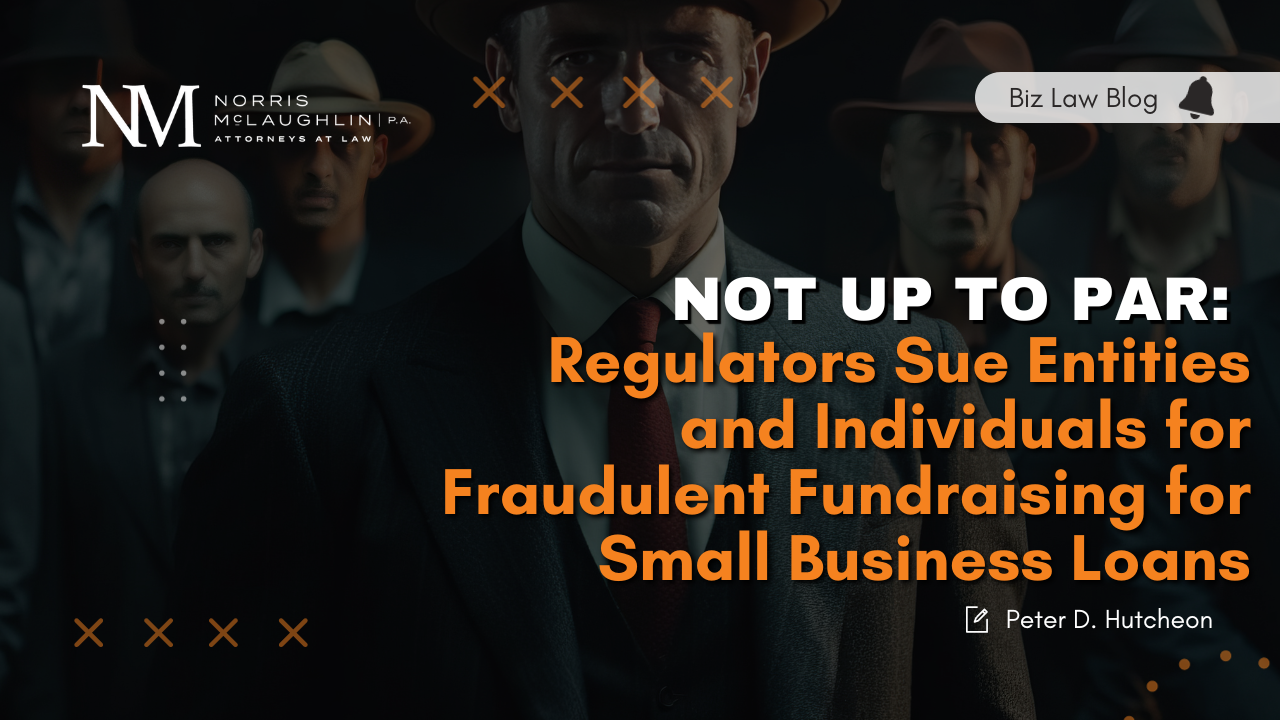A Triptych of Frauds: SEC Brings Enforcement Actions

“There is something perverse in the very nature of mankind,” as Lucretius wrote in his great didactic poem “De rerum natura” [On the Nature of Things] in the first century B.C.
And greed, again, and the blind lust of honours,
Which force poor wretches past the bounds of law…
So, the following three tales capture the weakness of the human soul, which would rather celebrate financial gain at the expense of reputation, money, and position. It is perhaps not entirely an accident that the three recent enforcement actions brought by the U.S. Securities and Exchange Commission (“SEC”) fall so close in time to the Christian Easter and the Jewish Passover, when some ordinary folk are (to quote from the Book of Daniel) “mene, mene, tekel, upharsin” [measured, weighed and found wanting].
- Never Look Dental Equipment In the Teeth. On Tuesday, March 15, 2022, the SEC announced charges against S-Ray Incorporated and Stephen Alexander Baird filed in the U.S. District Court for the Western District of Washington. Mr. Baird had founded S-Ray in 2010 “to develop ultrasound technology for use in dentistry.” According to the SEC Complaint, Baird had raised over $2 million from dozens of investors (mainly dentists and orthodontists), but by 2018 had only “developed a couple of prototypes” and had not sold any products. Nonetheless Baird, since 2018, made false claims about customers, orders, and revenue projections. By 2019 the company’s last employee (other than Baird), not having been paid, had left. Baird told investors that the company had booked $1 million in orders and that he would forgo his salary to support the company; none of that was true. In fact, from 2019 Baird used “almost half” of the funds raised from investors to pay himself and his wife (allegedly repaying them for money they had loaned to the company). Baird also sold his own S-Ray shares to investors from August 2017 through October 2018. The SEC seeks an injunction against Baird and S-Ray, disgorgement of the monies raised, and civil penalties; and a bar against Baird from acting as an officer or director of a public company OR participating in any securities transaction.
- A Cloud of Witnesses. On March 28, 2022, the SEC announced insider trading charges against three software engineers of Twillio, Inc. (a cloud computing company based in San Francisco) and four family members and friends. The defendants allegedly made more than $1 million in profits by “trading ahead of [Twillio”s] positive first quarter 2020 earnings announcement.” The three software engineers were friends, and according to the SEC were part of the Twillio Billing Platform, which generated invoices to customers and aggregated customer usage. The three had agreed, as part of their hiring, “not to make use of information they learned during their employment.” Moreover, they were aware of the company’s insider trading policy, which prohibited them from trading on “material, nonpublic information” or recommending purchases or sales to others based on such information. The three determined that Twillio’s revenues were going to be significantly higher than the company’s guidance in March, due to the substantial increase in the use of cloud computing in response to the pandemic. The three communicated frequently, sometimes using Telugu, a language used in parts of India, citing as an example one customer’s increased use from tens of thousands of dollars to nearly $2 million in March 2020. The three Twillio employees and their four friends and relatives bought Twillio shares and options. On May 6, 2020, Twillio announced its earnings. The stock that had been trading at $110 per share rose to $170 a share on May 7. The insider trading yielded more than $1 million in “illegal trading profits.” In addition to seeking disgorgement of those profits and substantial civil penalties, one of the friends has been charged with criminal insider trading by the U.S. Attorney’s Office for the Northern District of California.
- The Fourth Crow. On Tuesday, April 5, 2022, the SEC charged Melville ten Cate, a U.S. citizen residing in Europe, with making a fraudulent offer of more than $14 billion to purchase all of the stock of Textron, Inc., a large, diversified manufacturer (and a Fortune 500 company) focused on aircraft, defense, and related industries. Textron had a market capitalization of more than $10 billion; the takeover offer was made by Xcaliber Aerospace, Ltd., at a price 56% above the then market price of Textron on the New York Stock Exchange. Ten Cate was the sole stockholder of Xcaliber, which had, according to the SEC, “negligible, if any, assets, operations and revenue” and “was never positioned to make any legitimate offer for Textron.” On Monday November 9, 2020, ten Cate placed a (“tombstone”) advertisement in The New York Times announcing the offer, which expired on December 11, 2020. The advertisement falsely stated that Xcaliber had secured $11 billion in financing to fund the offer. In response to the offer, Textron stock rose 15%. Upon investigation, ten Cate was found to have been the principal involved in bankruptcy proceedings in the UK (2015 and 2017), in Iceland (2015 and 2016), in Luxembourg in 2007, and in a 2008 default judgment in Virginia. The SEC Press Release concerning the case notes that ten Cate did not even pay for The New York Times advertisement. The SEC seeks a permanent injunction against ten Cate, civil penalties, and an officer and director bar. The U.S. Attorney’s Office for the Southern District of New York announced on April 5, 2022, that it had brought criminal fraud charges against ten Cate. In the words of the old Scot’s song, “the fourth craw, wasna there at a’.”
There are those who seek to fund a start-up to exploit new technology (something anyone who has had to visit the dentist must applaud), but it is not permissible to lie, especially when raising money from others. There are those who are tempted by a “sure thing” (much as the losing bettor discovered in the movie “The Sting”); but that is against the law and the strictures of employment. And there are the out-and-out “con men,” who appear to believe that it is “ok” to profit by disrupting the market system.
In any event, one may wish to reflect on the observation of Geoffrey Chaucer in the “Prologue to the Pardoner’s Tale” (in “The Canterbury Tales”):
“Radix malorum est Cupiditas” [Money is the root of all evil]. If you have any questions about this post or any other related securities or general business law matters, please feel free to contact me at pdhutcheon@norris-law.com.




